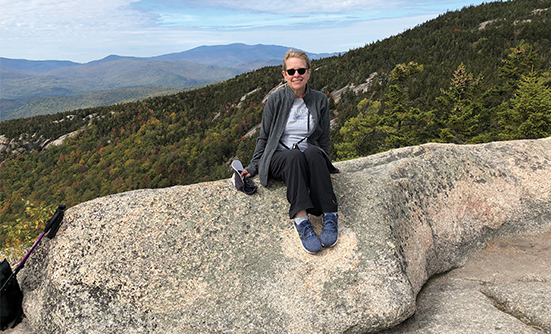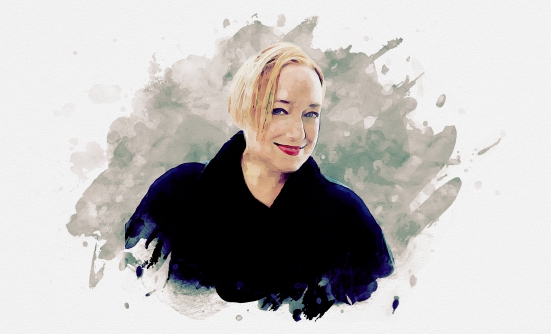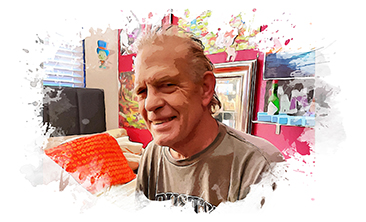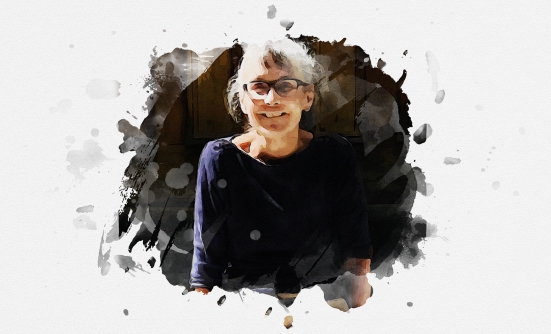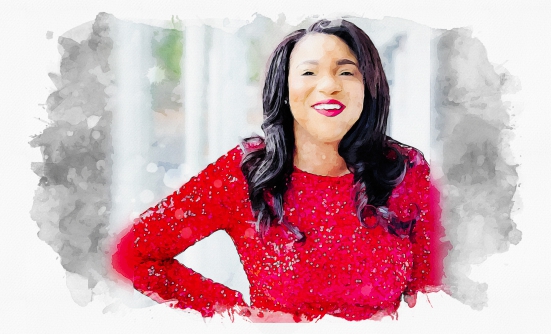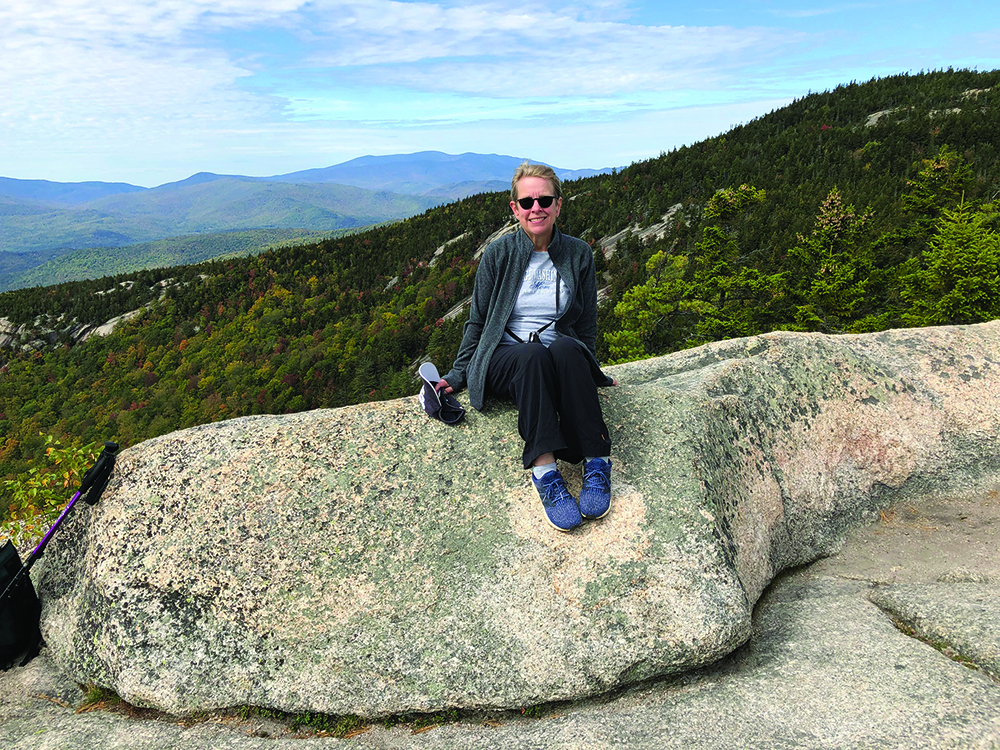
I have had a long and intricate dance with a blood cancer. It began in 2006, when I was 46 years old, my son was in kindergarten, and I was president of a Los Angeles–based software company. While traveling regularly for work, I tried to find balance being a wife and a mother. However, my body just could not keep up with the load, and the exhaustion I felt was beyond just being tired. I knew something was very wrong.
After visits to many different doctors and specialists and many rounds of tests, I finally received the news I had suspected but dreaded: I had cancer. A biopsy of an abdominal mass confirmed that it was follicular lymphoma, a slow-growing (or indolent) type of non-Hodgkin lymphoma, an incurable blood cancer with poor prognosis. One oncologist said I had a 50% chance that I would survive 2 years; I told him I had a 0% or 100% chance, and I would not settle for anything in between. I never went back to him.
During the next 12 years, I received 6 different types of cancer therapies for follicular lymphoma and was in continuous treatment, because none of the therapies led to a complete remission, and because the cancer relapsed during or after each treatment.
CAR T-Cell Immunotherapy
Just when I thought I had no other options, in spring 2018, I learned about a clinical trial that was opening at the University of California, Los Angeles (UCLA) with a new type of immunotherapy called chimeric antigen receptor T-cell therapy, or CAR T-cell therapy. This therapy is called Yescarta (axicabtagene ciloleucel), which had early and significant financial support from the Leukemia & Lymphoma Society (LLS). Since then the FDA approved it as the second CAR T-cell therapy for the treatment of patients with certain types of lymphoma.
CAR T-cell immunotherapy involves a revolutionary procedure, in which doctors remove the patient’s own T-cells and genetically modify them to identify cancer cells, then return those modified cells to the patient, so they could destroy the cancer cells. At that time, there were 5 openings in the clinical trial, and I was fortunate to be eligible for the study and filled the first of those spots.
Although the CAR T-cell therapy procedure I had in 2018 was ultimately successful, I nearly died during the process. In July 2018, I received my genetically modified CAR T-cells and soon after, I began to have high fevers, elevated heart rate, and low blood pressure—side effects that are associated with cytokine release syndrome, an intense immune response to this unique therapy that is potentially life-threatening.
I was placed in the ICU for 25 days; unfortunately, once I recovered from the side effects of cytokine release syndrome, I had brain seizures, which led my doctors to put me in a medically induced coma for more than a week.
Finally, after 36 days in the hospital, I returned home. The very next day, my son left on his own for his freshman year of college in Washington, D.C. Since my diagnosis, there were times I thought I would never live to see him finish elementary, middle, and high school, let alone head to college.
A Second Chance
Although I nearly lost my life, I received the incredible news that for the first time since I had been first diagnosed, my cancer was in complete remission, as a result of receiving this CAR T-cell therapy. After my 6 previous failed therapies, I had never expected to hear this news.
CAR T-cell therapy has been a revolutionary development in cancer treatment and has been likened to the discovery of penicillin and the development of the polio vaccine.
Fortunately, when I was brought out of the coma in August 2018, my brain was still functioning, but I had to relearn how to walk, drive, and perform simple day-to-day functions that were no longer in my grasp. Thankfully, so far, I have not had long-term side effects from the CAR T-cell therapy, which is rare for cancer treatments.
It was not the easiest road for me, but it certainly was worth it in the end, and I would do it again in a heartbeat, even recalling the challenging experience. There simply was no treatment option left for me when I signed up for the clinical trial, and if I had not tried the CAR T-cell therapy, the lymphoma would have been fatal quickly, because I had bulky tumors throughout my body. In July 2020, I will have my 2-year, post–CAR T-cell scan, and I anticipate a good result.
Leukemia & Lymphoma Society
I recently joined LLS’s Patti Robinson Kaufmann First Connection Program, which puts patients with newly diagnosed or relapsed cancer in touch with survivors who have been through this experience. I have been helping many people who are undergoing CAR T-cell therapy all over the country.
In my experience over the last 2 years, I have seen a dramatic decline in side effects in patients receiving CAR T-cell therapy, as medical researchers have learned so much about how to improve this therapy.
The results that were published for my clinical trial were astounding: among the 80 patients with follicular lymphoma who were enrolled in the study, the overall response rate was 95%, and 80% of these patients had complete remission—a remarkable result.
Since I survived my life-changing 12-year cancer journey, and in particular, my CAR T-cell adventure, I am determined to get strong enough to be able to trek to the Everest Base Camp with a group of fellow climbers of Climb 2 Cure, a program of LLS’s Team In Training campaign.
I was scheduled to go in April 2020, but the coronavirus shut down the world, and so I have postponed my trip until the spring of 2021. Two of my UCLA oncologists and a documentary filmmaker will be joining me on the trek.
I turned 60 recently, but I think that my CAR T-cells are a magic potion that have me aging backwards now. I certainly don’t feel that age, neither physically nor mentally.
Trekking Everest to Fund Cancer Research
I have multiple reasons for embarking on this trek: to raise money for more LLS-funded research for immunotherapies, which could potentially cure not only blood cancers but also solid cancers; to raise awareness of this miraculous new type of immunotherapy; to give fellow patients and their families hope that their cancer can be survived and overcome; and to raise awareness of LLS and all they do for patients everywhere.
To date, LLS—which was among the first organization to fund the development of CAR T-cell therapy—has raised and donated more than $40 million to help fund its research and development; since the founding of this organization, LLS has donated nearly $1.3 billion to cancer research.
I was fortunate to receive CAR T-cell therapy in a clinical trial, which meant that I had no out-of-pocket medical or hospital expenses. I recently learned that the cost to prepare my individualized CAR T-cells and all that was involved with it was $1.5 million, and the cost of my 36-day hospitalization at UCLA was $1 million, because I spent the majority of my hospital time in the hospital’s ICU.
Of course, all these costs are coming down as a result of increased competition and the potential for this therapy to be delivered on an outpatient basis thanks to all the improvements made since I received it.
I thought it would be meaningful to set a fundraising goal for my Everest climb that would be representative of the amount of out-of-pocket expense that I could have had if I had not received that therapy in a free clinical trial.
Assuming that my insurance had covered 90% of the costs, I would have been left with an out-of-pocket expense of $250,000 of the total of $2.5 million.
Although I have a long way to go to get strong enough for the climb, I have confidence that just as I overcame an incurable cancer diagnosis, I can conquer a mountain.





